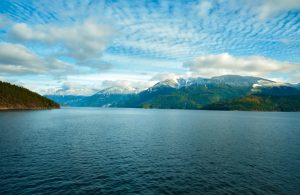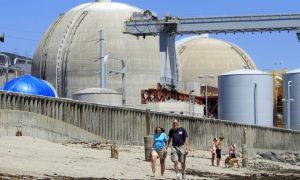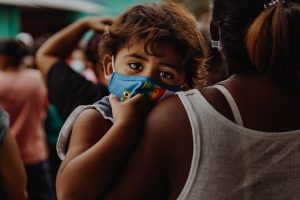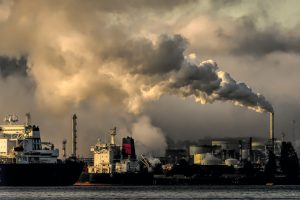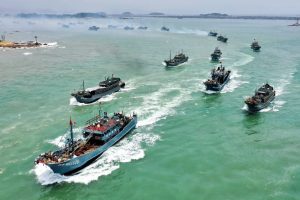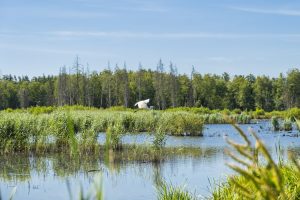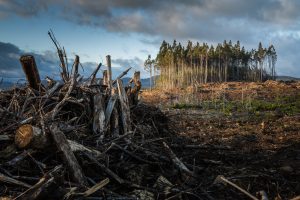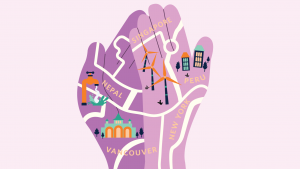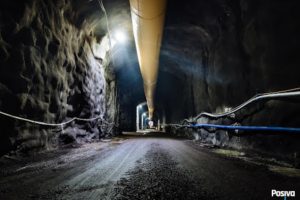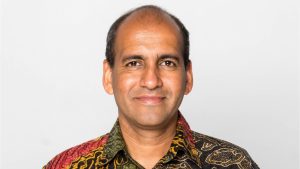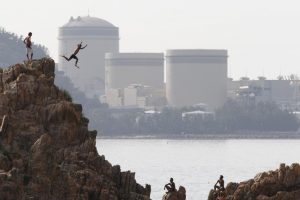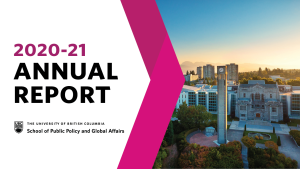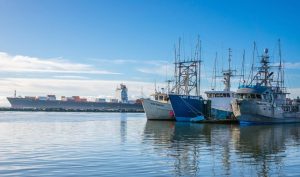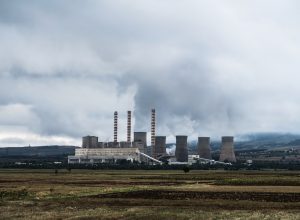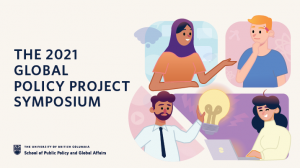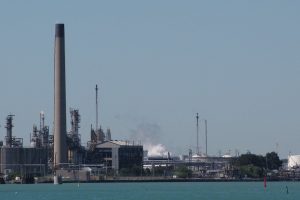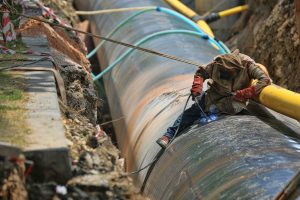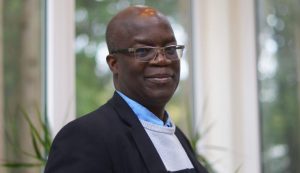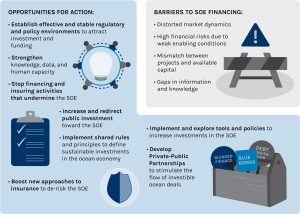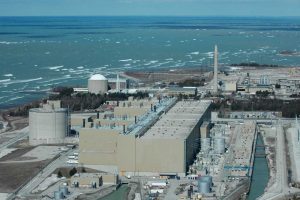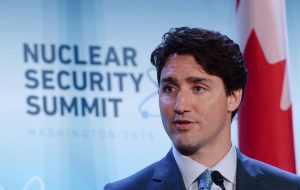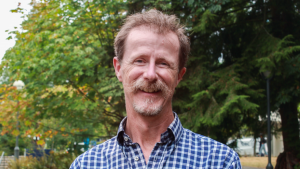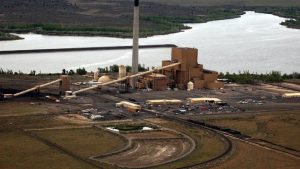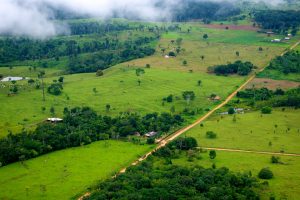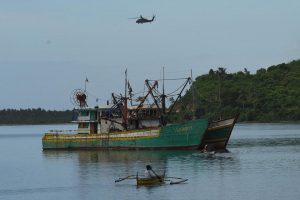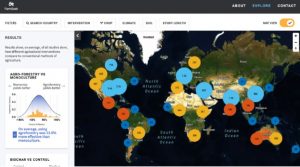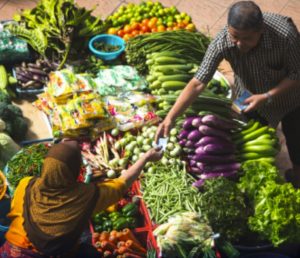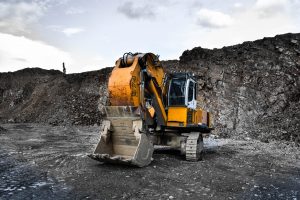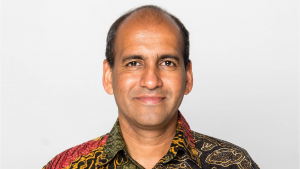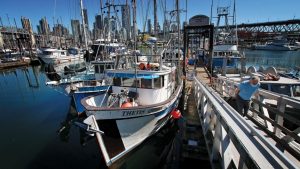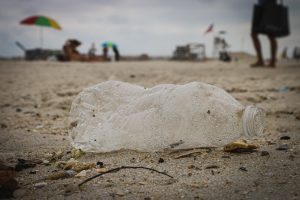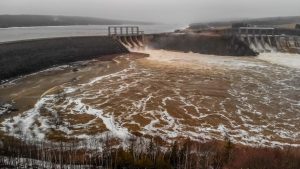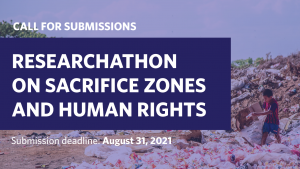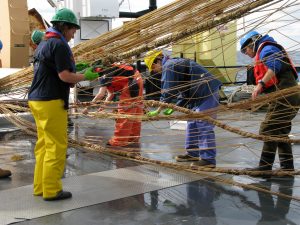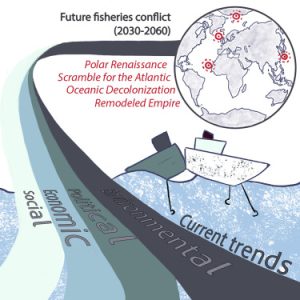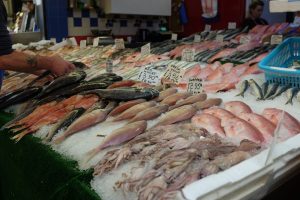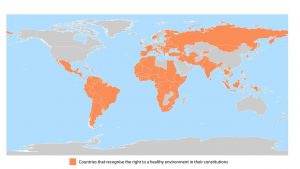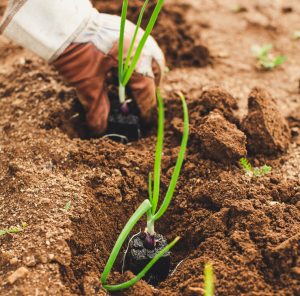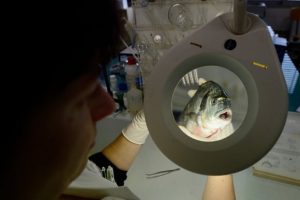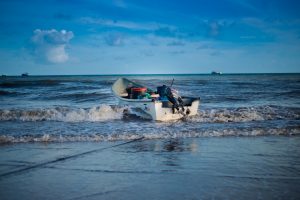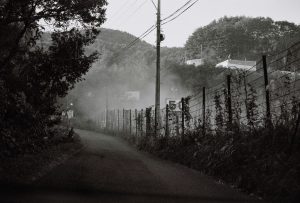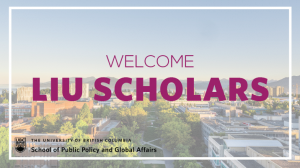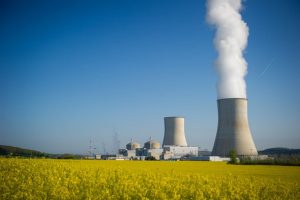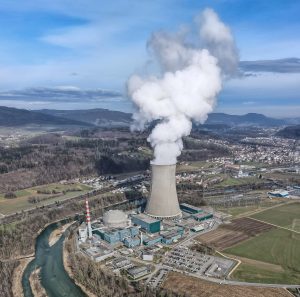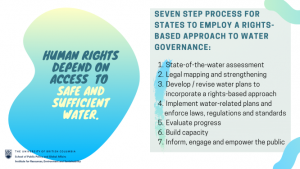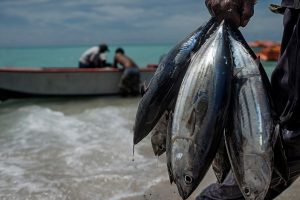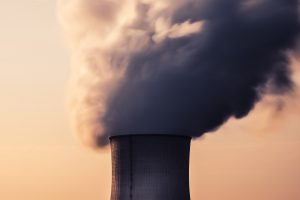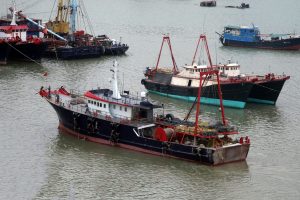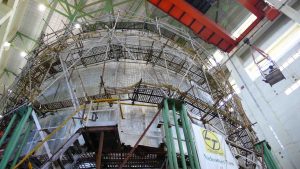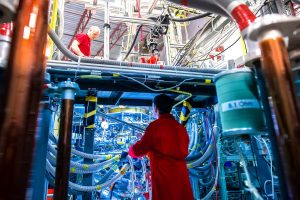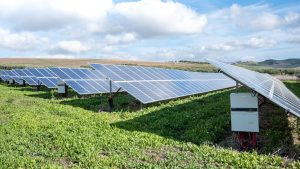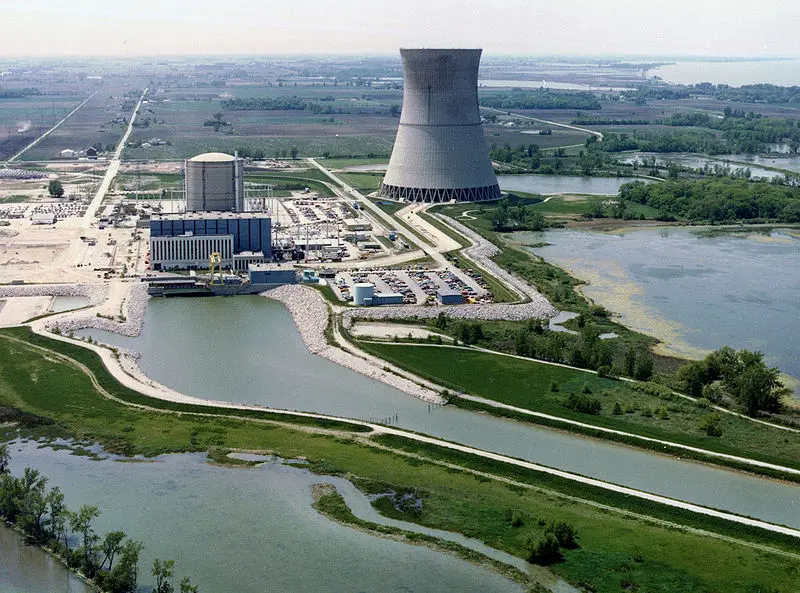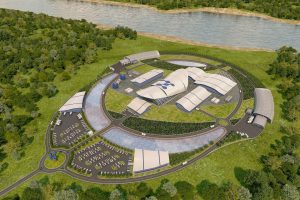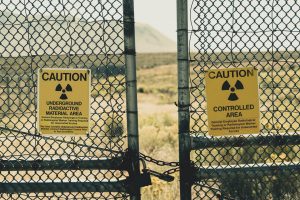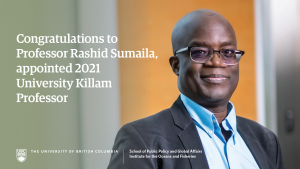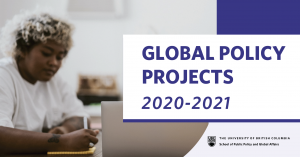Is There a Nuclear Option for Stopping Climate Change?
A rapidly warming climate has people questioning whether nuclear power is a viable option for decarbonisation. Director Allison Macfarlane warns that the construction time for nuclear plants is much longer compared to renewable projects and America “can’t afford to wait that long” (Subscription).
Climate Services Promise Better Decisions but Mainly Focus on Better Data
Climate services are intended to improve climate-sensitive decisions by making climate information ‘useful, useable and used’. Professor Milind Kandlikar’s (SPPGA; IRES) co-authors a study to evaluate whether this model of climate science has been successfully implemented in the public sector (Subscription).
Professor George Hoberg Publishes New Book: “The Resistance Dilemma: Place-Based Movements and the Climate Crisis”
What are the risks around a so-called “resistance dilemma” in a world hungry for clean and renewable energy? SPPGA Professor George Hoberg’s new book, “The Resistance Dilemma: Place-Based Movements and the Climate Crisis,” is a fresh take on the climate movement and its shift from lobbying to blocking new fossil fuel infrastructure.
Fossil Fuels, Climate Change, and the COVID-19 Crisis: Pathways for a Just and Green Post-Pandemic Recovery
A climate-positive COVID-19 recovery can accelerate the energy transition away from fossil fuels. Professor Philippe Le Billon (SPPGA; Geography) suggests that most fossil fuel producers are more likely to take on a ‘dirty’ recovery path out of the pandemic than a ‘green’ one.
South China Sea, Xinjiang Muddy Water of Fishing Subsidies Debate as WTO Faces ‘Crucial Test’
The World Trade Organization hopes to conclude negotiations over fishing subsidies this year after a twenty-year impasse. SPPGA Professor Kristen Hopewell was quoted on this article on environmentally damaging fisheries subsidies worth $35 billion, with China handing out the most (Subscription).
The Art of Pondering Earth’s Distant Future
“We were born on a damaged planet careening toward environmental collapse. Yet our intellects are poorly equipped to grasp the scale of the Earth’s ecological death spiral.” As an anthropologist, Postdoctoral Fellow Vincent Ialenti shows us how thinking across time can help us become more responsible planetary stewards and foster empathy across generations.
Transparency in Environmental and Resource Governance: Theories of Change for the EITI
Professor Philippe Le Billon (SPPGA; Geography) co-authors article discussing how transparency is now a core principle in environmental and resource governance and identifies three “Theories of Change” for governance-by-disclosure and applies them to the Extractive Industries Transparency Initiative.
We’ve Been Here Before: Wyoming Nuclear Project Echoes of Past
After state officials unveiled Wyoming’s Natrium nuclear project, industry critics are doubtful plans will follow through. Director Allison Macfarlane warns that “we can’t pin our hopes on [nuclear] as the thing that’s going to get us out of the next 20 [crucial] years.”
Another 30 Years to Go – the Final Storage of High-level Radioactive Waste
Read the latest interview with SPPGA Director Allison Macfarlane, where she discusses the worldwide search for a nuclear repository, the factors that determine a successful site search and the current United States’ stalemate on this issue.
MPPGA Global Policy Project Catalogue
We’ve launched the full catalogue of Global Policy Projects from UBC’s Master of Public Policy and Global Affairs students, showcasing their work with clients on real-world policy challenges. Learn about each project, browse policy reports, and view presentations.
Environmental Defenders Deadly Struggles for Life and Territory
This book, edited By Mary Menton and Philippe Le Billon, is about environmental defenders and the violence they face while seeking to protect their land and the environment.
Four New UBC SPPGA Faculty Projects Receive SSHRC Funding
SPPGA congratulates professors Philippe Le Billon, Rashid Sumaila, Sheryl Lightfoot, and Kristen Hopewell whose projects received SSHRC funding through Partnership Development and Insight Grants.
SPPGA Releases 2020-2021 Annual Report
The UBC School of Public Policy and Global Affairs has published its 2020-2021 annual report which features our faculty’s research projects, policy engagement, and notable achievements, student and alumni profiles, and our various convening and learning activities.
Ethical Considerations for Research on Small-Scale Fisheries and Blue Crimes
Crimes at sea—blue crimes—can have devastating impacts on small-scale fishing communities. Professor Philippe Le Billon (SPPGA; Geography) discusses the risks and ethical challenges faced by a blue crimes research agenda to improve rather than worsen the plight of small-scale fishers.
2021 Global Policy Project Symposium Highlights
As a defining element of UBC’s professional Master of Public Policy and Global Affairs (MPPGA) curriculum, the Global Policy Project (GP2) provides the opportunity for MPPGA students to engage with policy makers and civil society organizations on a real-world policy challenge, in Canada and around the world. Learn more on the Global Policy Project page. On April […]
Developer Pulls Plug on Keystone XL Pipeline
SPPGA Professor George Hoberg discusses with Global News Morning BC what the cancellation of the contentious crude oil pipeline project means for hopes of a net-zero future.
Can Joe Biden Kick-Start Stalled Progress on Ocean Conservation?
With the WTO and Biden administration prioritizing environmental concerns, Professor Rashid Sumaila (SPPGA; Institute for the Oceans and Fisheries) is optimistic that an agreement to ban harmful fisheries can be reached in the near future.
Biodiversity Day 2021
Professor David Boyd (SPPGA; IRES; UN Special Rapporteur on human rights and the environment) brings an inspiring message for this year’s Biodiversity Day.
Chickpea of the Sea
With heavy carbon-intensive practices impacting the fishing industry, plant-based alternatives could be the future of seafood. Professor Rashid Sumaila (SPPGA & UBC Oceans) warns that we need to take responsibility now lest ocean biodiversity disappears.
The Right to Breathe: Landmark Legal Case a Fight for South African Children Harmed by Coal’s Deadly Air
“The pollution in Mpumalanga is just one example of the devastating impact of air pollution on children.” Professor David Boyd (SPPGA; IRES; UN Special Rapporteur on human rights and the environment) intervenes in a landmark legal case in South Africa as a friend of the court.
Citizen Lawsuit Seeks Court’s Help in Battle for Clean Air in Jakarta
Jakartans are joining a citizen lawsuit against the government to force officials to address the city’s grave air pollution. Professor David Boyd (SPPGA; IRES; UN Special Rapporteur on human rights and the environment) submits a brief in support, pointing out that air pollution is responsible for hundreds of thousands of deaths in Indonesia each year (Subscription).
Plastics Manufacturers Seek to Quash Toxic Designation in Court
Professor David Boyd (SPPGA; IRES; UN Special Rapporteur on human rights and the environment) comments on plastics manufacturers taking the federal government to court after Ottawa designated their products as toxic (Subscription).
Oil, Fisheries and Coastal Communities: A Review of Impacts on the Environment, Livelihoods, Space and Governance
Professor Philippe Le Billon (SPPGA; Geography) co-authors this article, providing a review of the effects of oil development in relation to the environment, small-scale fisheries and coastal disputes over territory and infrastructure, and ocean and coastal governance processes.
Plan to Import Nuclear Waste Raises Larger Questions about Plans to Deal with Domestic Nuclear Waste
Following news that former prime minister Jean Chrétien was part of a secret project to set up a radioactive nuclear waste repository, officials have declared that the proposal is dead. But Professor Ramana and Kerrie Blaise say that the proposal raises ethical questions about moving nuclear waste or producing it in the first place (Subscription).
Geeking out on Farming
Want to know how a certain farm intervention affects yields in your part of the world? Zia Mehrabi & Professor Navin Ramankutty (SPPGA & UBC IRES) worked together to create FarmGeek, an online tool that will help you do just that.
Women Suffer Most When Disaster Strikes
“Women are up to 14 times more likely to die or be injured following a disaster.” MPPGA students Brayden Pelham, Erica Steele, Stephen Patenaude and Victoria Ker raise the question: What should we be doing differently in Canada to reduce the gender imbalance when future disasters strike? (Subscription).
Discussion Brief Series On The Right to a Healthy Environment In Southeast Asia
Claudia Ituarte-Lima co-edited two discussion briefs that synthesize findings and recommendations from a study entitled, ‘Prosperous and green in the Anthropocene: The human right to a healthy environment in Southeast Asia (2020)’.
Prosperous and green in the Anthropocene: The human right to a healthy environment in Southeast Asia
Claudia Ituarte-Lima (SPPGA Visiting Scholar) and her team translated the executive summary, introductory and concluding chapters of a 2020 study into Burmese, Thai, and Vietnamese.
The Trans-Formative with Trans-Parency: Untapping Ground-up Environmental Information and New Technologies for Sustainability
Claudia Ituarte-Lima (SPPGA Visiting Scholar) co-authored a new chapter titled, The Trans-Formative with Trans-Parency: Untapping Ground-up Environmental Information and New Technologies for Sustainability.
Le Canada Mise sur le Nucléaire pour Réduire les GES
To meet its goal of climate neutrality by 2050, Canada has invested more than $75 million into the development of small modular reactors (SMRs). Professor Ramana weighs in on the conversation (French).
‘War Means Blood’: Can a Treaty Stop Latin American Activists Being Killed?
A treaty aiming to protect activists in Latin America could be a “life-saving game changer” according to Professor David Boyd (SPPGA; IRES; UN Special Rapporteur on human rights and the environment).
De-Politicising Seawater Desalination: Environmental Impact Assessments in the Atacama Mining Region, Chile
New research from Professor Nadja Kunz (SPPGA; NBK Institute of Mining Engineering) and others identifies how EIAs, tools meant to assess and mitigate negative socio-environmental outcomes, can be utilized in ways that enable them, such as in the case with desalinization in Chile.
Petits Réacteurs Nucléaires: Que Fera-t-On des Déchets
SPPGA Director Allison Macfarlane speaks on the feasibility of small modular nuclear reactors and waste management in wake of New Brunswick’s plan for deployment of SMRs (Article in French).
Japan: UN Experts ‘Deeply Disappointed’ by Decision to Discharge Fukushima Water
Three independent UN human rights experts, including Professor David Boyd (SPPGA; IRES) expressed deep regret over Japan’s decision to discharge potentially radioactive Fukushima nuclear plant water into the ocean, impacting millions across the Pacific.
Government Response to COVID-19 Surge. Single-Use Plastic Pollution
On the BC Today Podcast, Professor Rashid Sumaila (SPPGA & UBC Institute for the Oceans and Fisheries) discusses the benefits and minimal costs of banning single use plastics, and how it should be implemented at the municipal and national levels.
More Nuclear Reactors (SMRs): A Bad Investment for New Brunswick
“One cannot have both: nuclear power and sustainable renewable energy.” Professor Ramana and co-authors makes a case against SMRs for New Brunswick.
China’s Gone Fishing
China is the world’s largest exporter of seafood – and its largest consumer. After decades of overfishing, the nation is now looking for seafood in open and contested waters. Professor Rashid Sumaila (SPPGA & UBC Oceans) has more.
David Boyd, UN Special Rapporteur on Human Rights and the Environment, co-launches Researchathon on Sacrifice Zones and Human Rights
Join this year’s researchathon, hosted by Professor David Boyd (SPPGA; IRES) and Marcos A Orellana, which investigates “sacrifice zones” – places of severe pollution or environmental degradation where profits have been prioritized over people and public interests.
Why Small Modular Nuclear Reactors Won’t Help Counter the Climate Crisis
SPPGA Professor Ramana and others analyze the economies of scale, mass manufacturing, and the track record of small modular nuclear reactors to determine whether SMRs will help counter the climate crisis.
Seafood Trawl Fishing May Release as Much Carbon as Air Travel
In response to a study that suggests that seafloor trawl fishing releases as much carbon as air travel, Professor Rashid Sumaila (SPPGA & Institute for the Oceans and Fisheries) adds that we are putting too much pressure on our natural systems.
Connecting Peaces: TBCAS and the Integration of International, Social, and Ecological Peace
Transboundary Conservation Areas (TBCAs) have been heralded for their potential to foster peaceful relations, biodiversity conservation, and sustainable development, yet critics point out their failures. Professor Philippe Le Billon (SPPGA; Geography) suggests that TBCAs’ failings result in part from a lack of connection between three intertwined types of peace.
Exploring the Future of Fishery Conflict Through Narrative Scenarios
Disruptive changes in our global ocean and fisheries have sparked warnings of an increase in fishery conflicts. Professor Philippe Le Billon (SPPGA; Geography) co-authors this article, considers how multiple causal factors can drive conflict by using a scenario approach.
Cleaning Mineral Supply Chains? Political Economies of Exploitation and Hidden Costs of Technical Fixes
Professor Philippe Le Billon (SPPGA; Geography) examines hidden costs of three prominent mineral supply chain ‘solutions’ that respectively aim to create ‘conflict-free’ minerals, curtail corruption, and reduce mercury pollution.
Bait and Switch: Fish Fraud Rampant Worldwide, New Study Shows
After analysis of mislabeled seafood in various countries, Professor Rashid Sumaila (SPPGA & Institute for the Oceans and Fisheries) says that the worst offenders are those who purposely sell low-value fish in place of more expensive species.
The Human Right That Benefits Nature
As an advocate of the human right to a healthy environment, Professor David Boyd (SPPGA & UBC Institute for Resources, Environment and Sustainability) says that recognizing the right is “a catalyst for better actions” and calls for its recognition at the UN level.
Drawing Lines in the Sand? Paths Forward for Triggering Regulation of Gene-Edited Crops
Researchers are making use of new gene-editing techniques in medicine, bioenergy, industrial biotechnology, and beyond, and the field of crop breeding is no exception. Milind Kandlikar co-authors a study examining this phenomenon.
How to Feed the World & Shrink Our Climate Footprint
On Project Drawdown, Professor Navin Ramankutty shares up-to-date insights on food systems, climate solutions, and the importance of voting and youth climate action.
Revealed: Seafood Fraud Happening on a Vast Global Scale
Professor Rashid Sumaila (SPPGA & Institute for the Oceans and Fisheries) discusses “fish laundering” and the economic incentives of selling low-value fish in place of more expensive species, which is often linked to illegal, unreported, and unregulated fishing fleets.
A Deep Dive: Dr. Sumaila on Sustainable Ocean Management in Global Partnership
Taking a deep dive into sustainable ocean management, Professor Rashid Sumaila (SPPGA & Institute for the Oceans and Fisheries) says that global partnership and social, economic, and environmental interdisciplinarity will be essential in solving these global issues.
The Fukushima Accident: Do We Have the Wisdom to Move Forward?
As the 10th anniversary of the Fukushima accident approaches, SPPGA Director Allison Macfarlane discusses how to reconceive the risks of nuclear power plants in the process of transitioning away from the carbon economy.
Small Modular Nuclear Reactors and Net-Zero Carbon Emissions by 2050? The Math Doesn’t Add Up
Although small modular nuclear reactor advocates claim that net-zero carbon emissions are achievable by 2050, SPPGA Professor Ramana argues that the evidence of this is non-existent and highly unlikely.
SPPGA Welcomes New Liu Scholars
We warmly welcome our 2021-22 Liu Scholars. Learn more about their research and who they are working closely with among SPPGA faculty.
Small Modular and Advanced Nuclear Reactors: A Reality Check
SPPGA Professor Ramana examines whether small modular and advanced nuclear reactors can solve the problems of nuclear power technology – risks such as accidents, link to proliferation, waste, and economic competitiveness.
A Thin Conception of Time
Discussing SPPGA Postdoctoral Fellow Vincent Ialenti’s book, this article analyzes his idea of a “thin conception of time” where communities, businesses, and individuals live in short time spans; a cacophony progressing from one topic to another.
UN Report: Human Rights and the Global Water Crisis
Professor David Boyd (SPPGA; IRES) recently presented a UN report on the global water crisis, particularly on its disproportionate effects and state/business obligations to ensure safe and sufficient water for all.
China Gives Nuclear Power a Fresh Push in Drive to Go Green
As China plans to invest more in nuclear plants, SPPGA Professor Ramana is surprised that policymakers are persisting on this expensive source of electricity, despite the rest of the world slowing down their investments in nuclear energy.
Briefing Paper: The Proposed Nuclear Reactors (SMRs) for New Brunswick
In a briefing on the two proposed nuclear reactors for New Brunswick, SPPGA Prof Ramana and other experts discuss the cost-analysis of SMRs.
What is Happening in the South China Sea?
On the podcast show, The Shift, SPPGA Professor Paul Evans talks about the on-going dispute in the South China Sea and how that impacts the global economy, and why it should matter to Canada.
Problems with the Prototype Fast Breeder Reactor
For two decades, the story of India’s Prototype Fast Breeder Reactor is one of rising costs, delays and never-ending promises of commissioning. “Shouldn’t India then stop pursuing the breeder programme?” say Prof Ramana & MPPGA Student Nidhi Sharma.
Cleantech: B.C.’s $100-billion Opportunity
SPPGA Adjunct Professor Andrea Reimer talks of a $100-billion opportunity in BC for clean economic growth, with our biggest opportunities being in cleantech.
Incomplete Transitions to Clean Household Energy Reinforce Gender Inequality by Lowering Women’s Respiratory Health and Household Labour Productivity
Complete transition to cooking gas reduces gender inequality by improving women’s respiratory health. Professor Milind Kandlikar’s (SPPGA; IRES) co-written paper says that improving the affordability, supply and reliability of clean fuels should be a key focus.
Brazil’s Angra 3 Nuclear Reactor: A Political Undertaking, Not a Common Good
A questionable move by Brazil’s politicians to resume a costly nuclear energy program in place of cheaper renewables is mired in political corruption, says Carolina Basso. Basso’s article came out of a report she wrote for the Simons Award in Nuclear Disarmament and Global Security.
Principal Challenges to Financing the Sustainable Development Goals
The Sustainable Development Goals (SDGs) were created with the mission of realigning the global development track with the current realities of the world. But five years after the commitment to SDGs, MPPGA student Kingsley Eze writes, the challenges of financing remain.
Big Money, Nuclear Subsidies, and Systemic Corruption
In July, a $60 million bribery and corruption case came to light in Ohio. The guilty party—one of Ohio’s largest utility corporations. For years, the firm lobbied to continue operating its unprofitable nuclear plants, write Professor Ramana and MPPGA Alumna Cassandra Jeffery.
Mini Nuclear Reactors Offer Promise of Cheaper, Clean Power
As nuclear reactor makers pitch smaller, modular systems, SPPGA Professor Ramana says that the basic idea is flawed and that many of these expense reductions could ultimately increase their danger and create new safety risks.
Gorilla Radio with Chris Cook, Dimitri Lascaris, M.V. Ramana
Listen to Gorilla Radio’s podcast with SPPGA Prof. Ramana on how the Liberal government’s funding of Small Modular Reactors (SMRs) is a pipe dream. He cites the lengthy time, cost, and the economic disadvantage of switching to SMRs as the main reasons for its infeasibility.
Former U.S. Regulator Questions Small Nuclear Reactor Technology
In an article about small nuclear reactor technology, SPPGA Director Allison Macfarlane raises doubts about the feasibility of storage, alluding to the complexity of the shorter-term radioactivity of nuclear waste.
Professor Rashid Sumaila appointed University Killam Professor
We are pleased to congratulate Dr. Rashid Sumaila, Professor in the School of Public Policy and Global Affairs and the Institute for the Oceans and Fisheries, on his appointment as University Killam Professor
MPPGA Student Teams Tackle Policy Problems in Global Policy Project Fieldwork
In January 2021, four UBC Master of Public Policy and Global Affairs (MPPGA) student teams began their Global Policy Projects, working with clients on topics related to climate action, sustainable energy, and decolonization. PPGA 590B is being led by Andrea Reimer, Adjunct Professor of Practice, UBC School of Public Policy and Global Affairs. The Global Policy Project is a 6-credit course […]

